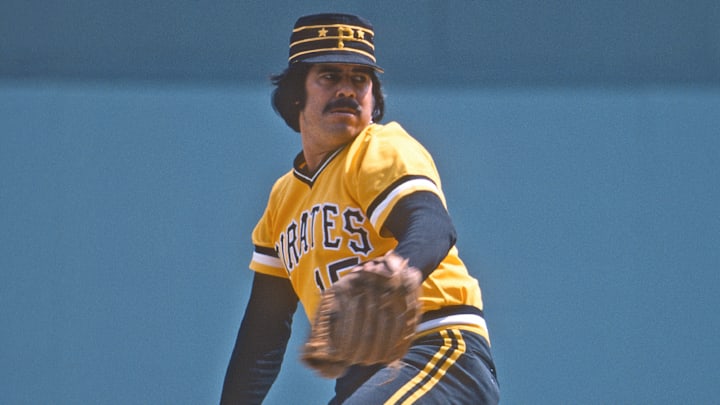The 1979 Pittsburgh Pirates. World Series champions. Blyleven, Candelaria, Madlock, Parker, Stargell, Tekulve. An incredible team. A legendary season. One you could say is the best in franchise history. And then came the slide. For the next decade, the Pirates would remain in obscurity. Some years were better than others, but nothing of substance can be attributed to this span.
Things finally began to look up again for the young team led by Jim Leyland as the '80s came to a close. The Pittsburgh Drug Trials were in the past, and the Pirates looked to capture another title, with stars like Barry Bonds and Doug Drabek leading the way. From the darkest days eventually came a serious contender - but that meant an entire generation had moved on in the meantime. In order to thrive, the Pirates required a clean break and total turnover from their title winner. All the names mentioned above from the ‘79 squad had left, as well as several other valuable contributors. These included names like Mike Easler, Bruce Kison, Rennie Stennett and Enrique Romo, who is probably best known for his uniquely controversial departure from the Pirates.
Enrique, along with his brother Vicente, played professionally in Mexico before making his way to the majors. With the Pirates, Romo was almost exclusively used as a reliever, but was a dominant starting pitcher in the Mexican League.
For his efforts, he would later be inducted into the Mexican Baseball Hall of Fame (2003) and Latino Baseball Hall of Fame (2016), based in the Dominican Republic. He made his debut with the expansion Seattle Mariners in 1977, arguably his best year in the majors. That year, he pitched 114.1 innings to the tune of a 2.83 ERA, 1.155 WHIP and 105 strikeouts, picking up 16 saves in the process. Romo continued to perform well and was traded to Pittsburgh the following offseason. The deal sent fringe starter Rick Jones and minor league shortstop Tom McMillan with Romo to the Pirates in exchange for Odell Jones, Mario Mendoza and Rafael Vásquez.
The move paid off in short time, as Romo had an excellent 1979 as Tekulve’s set-up man. That year, when the Bucs won it all, he had a 2.99 ERA in 129.1 innings pitched, an ERA+ of 130, and 7.4 strikeouts per nine innings.
Enrique Romo thrived as Kent Tekulve's set-up man on 1979 World Series champion Pirates
Romo followed this up with another productive season in the bullpen on a Pirates team that fell short. This was the beginning of the end for Romo and Pittsburgh. It’s worth mentioning that he hit his first and only career major league home run that year - a grand slam, no less - off relief pitcher Roy Lee Jackson in an Oct. 1 matchup against the Mets at Shea Stadium. Unfortunately, the following years would feature injuries and fines for Romo.
The strike-shortened ‘81 season was another disappointment. Tensions in the clubhouse, not just between manager Chuck Tanner and Romo, were present. 1982 was the last season he played for the Pirates - or any other MLB team, for that matter. Although serviceable out of the bullpen, Romo did not recapture his earlier greatness. This was it for him. He did not report to spring training in 1983 and never returned. His teammates in Pittsburgh did not appreciate this, to say the least. At the time, this was quite the controversy. Rumors ran rampant, as nobody really knew what had happened to Enrique Romo.
As it turned out, Romo had been playing for an offshoot Mexican team in an unsanctioned league that didn’t last very long. Why he “retired” from the big leagues remains a mystery. This is not something Romo has ever opened up about in interviews, and we will likely never know the whole truth. His brother Vicente had a longer career in the majors, and later returned to the Mexican League before calling it quits. Both he and Enrique had their numbers (24 and 11) retired by the Obregón Yaquis, a Mexican Winter League team based in the state of Sonora, where the two grew up.
While Enrique’s departure from Pittsburgh was less than ideal, you have to at least appreciate what he did on the mound, especially in ‘79. Without him, would they have still won the World Series that year? It’s hard to say, another question we’ll never have an answer to. If you look at the entirety of Romo’s professional career, in Mexico and the United States, it’s one deserving of praise, whether some bitter Pirates fans are willing to admit this or not.
